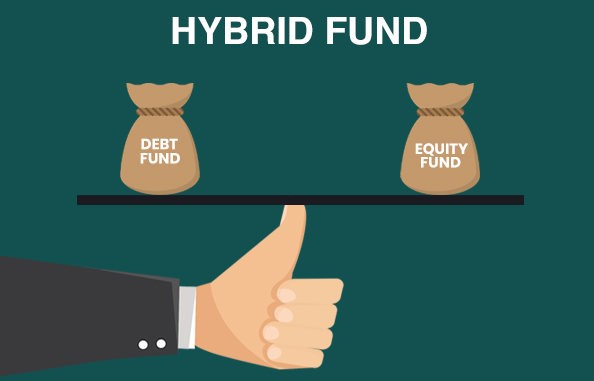As an investor, it is important to have a well-diversified portfolio. Experienced investors understand this and may take on higher levels of risk to earn potentially higher returns. But, as a new investor, the idea of risking hard-earned income on unpredictable markets can be intimidating. New investors generally don’t want to take too much risk, yet they need the potential for higher returns – something every investor dreams of.
For new investors who have yet to get a good grip on the equity markets, most financial experts often advise them to begin investing with aggressive hybrid funds. These funds can offer the necessary balance between equity and debt, which is essential for younger investors looking to gradually expand and adapt their investment strategies.
Given its importance for new investors, here is a detailed overview of aggressive hybrid funds and how these funds can add value and positive returns to their portfolio!
Aggressive hybrid funds – An overview
Aggressive hybrid funds are mutual funds where a larger portion of the asset allocation is given to equity or equity-linked investments. As per SEBI regulations, these funds should have 65%-80% of their corpus invested in equity and the rest divided among debt and money market instruments. The potential for capital growth through equity investing is balanced with the security and regular income generated by debt – creating an attractive option for investors looking to combine the best elements of both these asset classes into a single product.
Why are aggressive hybrid funds an ideal investment vehicle for new investors?
- Asset allocationand automatic rebalancing
Aggressive hybrid funds are beneficial to new investors as they automatically rebalance portfolios. By keeping higher allocation in equities, and the remaining balance in debt, aggressive hybrid funds make it easier for relatively new portfolio owners to remain consistent with their asset allocations as the market fluctuates. This further simplifies the process of creating a portfolio and minimising the potential risk associated with investing while also allowing investors to meet their desired allocations through a single fund.
So, they don’t have to worry about manually adjusting their portfolio or researching different investments to ensure they get the best return possible.
- Long-term growth with lower risks than pure equities
For investors just starting out with investment in mutual funds, aggressive hybrid funds can offer the potential for long-term growth through equities. Equity mutual funds are known to provide higher returns; however, they typically have high volatility (in the short term) and come with associated risks. Aggressive hybrid funds provide the potential for results similar to that of an equity fund but with lower volatility and risk.
Investing in these funds should be done with a long-term view, holding the fund for at least 3 years or more. A 3-year horizon or more can provide investors with time to adjust to their chosen strategy and give the fund reasonable time to yield desired returns.
- Ease of use
Aggressive hybrid funds provide access to different asset classes without needing to buy multiple funds or undertake complicated tracking responsibilities by the investor. The fund manager responsibly manages asset allocation between stocks and bonds in the portfolio, making it easier for new investors to take advantage of this investment without extensive supervision or research.
- A diversified mutual fund portfolio
The combination of equity and debt markets gives investors access to both the high-return and high-risk asset class of equities and the low-return and low-risk asset class of debt. This structured approach helps reduce portfolio volatility, making it ideal for new investors.
Final words
With their high level of flexibility, balanced risk and returns nature, and potential for diversification, aggressive hybrid funds can be a valuable investment vehicle for new and young investors. However, at the same time, a careful assessment of financial goals, investment horizon, and risk tolerance should be carried out to ensure that investors choose the best funds for their portfolios.






